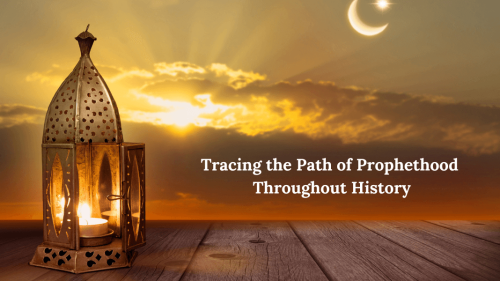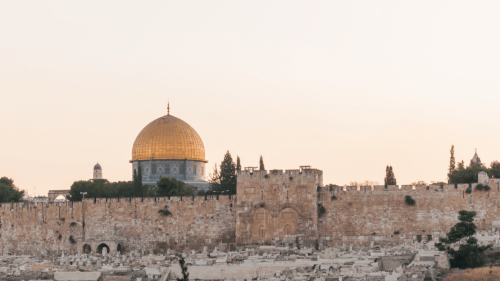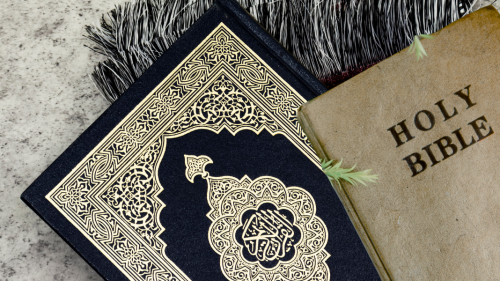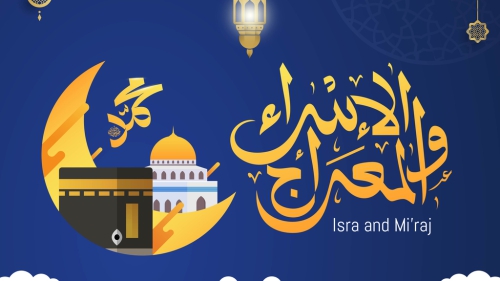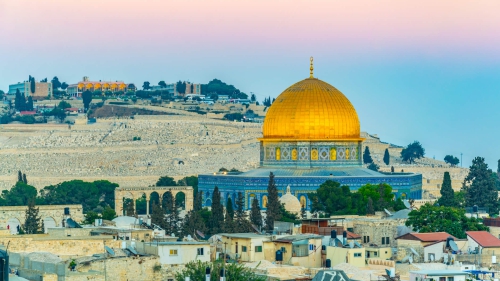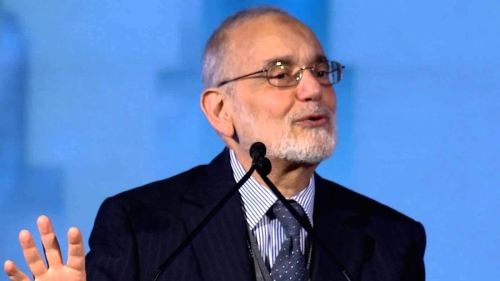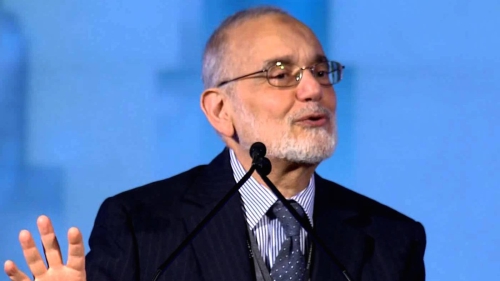Learn the Unlearning Process

Introduction
This paper reveals some of the factors that inhibit and block people's desire to unlearn human-made religious aspects. Resisting unlearning generated by fear and anxiety related to admitting the limitations to spiritual knowledge and practices that hindered tribal leaders or many people from accepting Islam.
Unlearning refers to the ability to deliberately discard obsolete, outdated, or unwanted religious knowledge. The ability to intentionally forget existing religious knowledge is necessary for the acceptance of righteous religious knowledge. For example, accepting Islam would require discarding other spiritual practices (unlearning) to make Islamic practices (learning). Unlearning means the replacement of embraced religious knowledge. All Prophets were called for forgetting (unlearning) their traditional religious beliefs since old methods and procedures did not lead to the right path. There is a close relationship between resisting unlearning the wrong religious practices and the prevailing political power that promoted obsolete, outdated, or unwanted spiritual knowledge.
Prophets faced many obstacles and impediments to guide their people to learn the process of unlearning. Prophet Noah, Abraham, Joseph, Moses, Jesus, and Muhammad (PBUT) faced immense challenges for teaching their inhabitants to learn the unlearning process. All Prophets invited their people to worship Allah Almighty instead of human-made gods. Prophets encountered a paradigm to guide their people to replace their culture, beliefs, and gods with righteous belief processes. They encountered immense challenges in guiding their citizens to Islam's truth and unlearning worshiping the false deities.
A similar paradigm confronted the implementation of a new manufacturing process during the eighteen hundred in Great Britain. The Luddites were a secret oath-based organization of English textile workers in the 19th century. They resisted the process of unlearning the old manufacturing process and learning a new approach. Though the Luddites unlearning resistance and learning a new skill was a manufacturing process, yet the opposition's resistance was due to the fear of losing power.
Prophet Nuh (PBUH)
Prophet Nuh (PBUH) utilized logic to help his nation discover the truth and unlearn their Satanism's practices of worshiping the devil instead of Allah Almighty. According to Sura 26, Verse 106, not only Prophet Noah (PBUH) asked his people: "Will you not fear Allah and obey Him?" But also according to Sura Yunus, he challenged his citizens to produce evidence for the existence of their gods and false demons.
Prophet Nuh (PBUH) challenged his indigenous people to either create proof of their false deities or follow the truth and believe in Allah Almighty. He challenged his son to examine reality and think about Allah Almighty. He asked his son to consider a small object like a grain of sand, which is known to Allah Almighty regardless of its location in "a rock or in the heavens" (Sura 31, Verse 16). For nine hundred and fifty years, Prophet Nuh (PBUH) advised his people to unlearn the false religious practices and follow the truth and accept Allah Almighty as their God (Sura 29, Verse 14). After struggling for hundreds of years with his citizens, Prophet Nuh (PBUH), characterized his people as rebellious and disobedient to Allah Almighty (Sura 51, Verse 46). When he reached the breaking point, Prophet Nuh (PBUH) invoked Allah Almighty and said: "My Lord! Leave not one of the disbelievers on the earth!" (Sura 71, Verse 26).
Prophet Ibrahim (PBUH)
Prophet Ibrahim (PBUH) rejected his people's religion early, and he unlearned his tribal religious practices. He also searched for the truth and discovering the evidence of Allah Almighty. According to Sura 6, Verse 78, he contemplated the universe when he "saw the sun rising. He said: "This is my lord, this is greater. But when it set, he said: O my people! I am indeed free from all that you join as partners in worship with Allah." Additionally, his father confronted him, and asked: Ibrahim, "Do you reject my gods?" (Sura 19, Verse 46). Then, his father threatened to punish him and said: Ibrahim, "get away from me safely before I punish you" (Sura 19, Verse 46).
Not only Ibrahim challenged his people to unlearn worshiping figures created by his inhabitants, but he also destroyed the stone figures, except the largest statue. Then Ibrahim directed his tribe to ask the largest sculpture for discovering who destroyed all models. For finding the accuser of crushing the stone statues, Ibrahim led his inhabitants, and said "this one, the biggest of them (idols) did it; ask them, if they can speak!" (Sura 21, Verse 63). Ibrahim utilized logic to assist his father and his inhabitants to learn unlearning worshiping false deities, and only submit to Allah Almighty. Furthermore, for helping his inhabitants to unlearn the fraudulent practices, Prophet Ibrahim (PBUH) invited them to "Worship Allah (Alone), and fear Him, that is better for you if you did but know" (S29, V16).
Prophet Musa (PBUH)
Prophet Musa (PBUH) rejected Pharaoh's religion and risked his life for opposing human-made practices. He intended to guide the inhabitants to learn, unlearning the Pharaoh's belief; thus, Musa (PBUH) was in imminent danger. According to Sura 28, Verse 20, a man warned him to get out of the city to avoid death. The man said: "the chiefs decided to kill you, verily, the chiefs are taking counsel together about killing you, so escape." Prophet Musa (PBUH) stayed out of Egypt between eight to ten years, according to Sura 28, Verse 27, and during that time, he got married.
Allah Almighty ordered Prophet Musa (PBUH) to return to Egypt to help his tribe and inhabitants to refrain from worshiping Pharaoh. Sura 20, Verse 24 described Pharaoh "Verily! he has transgressed (all bounds in disbelief and disobedience, has behaved as an arrogant, and as a tyrant)." Upon return to Egypt, Prophet Musa (PBUH) advised his tribe and native inhabitants to learn to worship Allah Almighty and unlearning worshiping Pharaoh.
For convincing Pharaoh and his administration to worship Allah Almighty, Prophet Musa(PBUH) "drew out his hand and behold! it was white (with radiance) for the beholders" (Sura 7, V108). And he "threw his stick and beheld! it was a snake, manifest" (Sura 7, V107). Not only that the Pharaoh Minsters said: "Will you leave Musa (Moses) and his people to spread mischief in the land, and to abandon you and your gods?" (Sura 7, V127), but also the Pharaoh Ministers refused to worship Allah Almighty and to unlearn worshiping Pharaoh. Prophet Musa (PBUH) invoked Allah Almighty and said, "Our Lord! Destroy their wealth. and harden their hearts so that they will not believe until they see the painful torment." (Sura 10, V 88). Pharaoh and his army chased Prophet Musa (PBUH) and his people while crossing the red sea. Then, the red sea waves overtook him. While he was drowning, Pharaoh, with a woeful voice, said, "I believe that La ilaha illa (there is only one God (Allah))" (Sura10, Verse 90). Pharaoh and his army opted for death rather than unlearning false worship deities instead of worshiping Allah Almighty.
Prophet Isa (PBUH)
Prophet Isa's (PBUH) circumstance was different than all Prophets before him. According to Sura 3, Verse 49, Prophet Isa (PBUH) stated, "I have come to you with a sign from your Lord." And he confirmed the Taurat (Torah, and said "to make lawful to you part of what was forbidden to you, and I have come to you with a proof from your Lord" Sura 3, Verse 50. Nuh (PBUH), Ibrahim (PBUH), Musa (PBUH) faced relentless resistance for guiding their people unlearning the worship of Satan, instead of Allah Almighty. But Prophet Isa (PBUH) was an extension to previous Prophets, and he was raised and lived among Jewish people.
The Quran dedicated one chapter (Sura 3) to Al Emran. Al Emran was a Jewish scholar. His daughter, Mary (PBUH), was born after her father's death. She became pregnant with Allah's order without being touched by a man. She said: "How can I have a son. when no man has touched me. Nor am I unchaste?" (Sura 19, Verse 20). While Prophet Isa (PBUH) deliberately discarded obsolete, outdated, or unwanted religious knowledge, he promoted worshiping Allah Almighty. And Allah Almighty ranked Jesus' family (Imran family) above all of Allah's creatures (Sura 3, Verse 33).
Allah Almighty granted Isa (PBUH) majestic powers. Prophet Isa (PBUH) brought them back to "life by Allah′s permission for deceased people." Prophet Isa (PBUH) invoked Allah almighty and asked, "O Allah. Our Lord! Send us from heaven a table spread (with food) that there may be for us - for the first and the last of us - a festival and a sign from You." Prophet Isa (PBUH) presented his residents evidence for unlearning worship of Satan and choosing the right path for worshiping Allah Almighty.
Muhammad (PBUH)
While Prophet Muhammad (PBUH) contemplated the existence and the hereafter, the angel Gabriel asked him to read! Since the Prophet was illiterate, he replied, "I am illiterate," the angel recited Sura 96, Verse 1 "Read! In the Name of your Lord, HE has created (all that exists.)" Prophet Muhammad (PBUH), his tribe, and most Arabian tribes were monotheistic (Takoosh, 2009, p. 273). Still, according to many Verses in the Holy Quran, Arabs believed in the unity of Allah. For example, Sura 39, Verse 38 stated that if you had asked Arabs before the time of Prophet Mohamed (PBUH) "Who created the heavens and the earth?" they would indeed say, "Allah."
Furthermore, Sura 31, Verse 25 indicated if you had queried them, "Who created the heavens and earth?" they would indeed say, "Allah." Despite knowing Allah the Almighty and their annual pilgrimage to Makkah, the leaders of the Arab tribes declared war and coordinated their efforts to eliminate the message of Allah. At the time of Prophet Muhammad (PBUH), the Arab leaders posed relentless resistance to learn, unlearning Satanism's practices, and learn the right path to Allah Almighty. The Arab leaders' opposition was triggered by the fear of losing power and prestige since Islam treats all people equally regardless of title, wealth, position, color, or birthplace.
Additionally, Prophet Muhammad (PBUH) endured hostilities initiated by other tribes and by his uncle, according to Sura 111, Verse 1 "Perish the two hands of Abu Lahab and perish he! Prophet Muhammad (PBUH) and his companion (Abu Bakr) escaped from Makkah to Medina. They avoided being captured by the nonbelievers, and they sheltered in a cave. For subsiding the fear of his companion, he said to his companion (Abu Bakr): "Be not sad (or afraid). surely Allah is with us" (Sura 9, Verse 40).
During his time in Medina, Prophet Muhammad (PBUH) focused on teaching authentic Islamic manners and abolishing ignorant behaviors. His focus was on discovering and unlearning the naive, arrogant process and adopting Islamic behaviors. According to Sahih Muslim 1661, Book 27, Hadith 61, the companion, Abu Dharr, argued with another companion whose mother was non-Arab; Abu Dharr addressed the latter and said, "Your mother was a non-Arab." The Prophet Muhammad (PBUH) expressed his disappointment, with a voice of dissatisfaction, he said: "Abu Dharr, you are a person who still has (the remnants) of ignorance in him, they (your servants and slaves) are your brothers."
Prophets faced prosecution and suffered resentment for guiding their people to Allah's right path and learning unlearning Satanism's practices. Prophet Ibrahim (PBUH) rejected his people's religion at a young age, and his people tried to burn him alive. Prophet Musa (PBUH) rejected Pharaoh's religion. He feared for his life, and he stayed out of Egypt for eight to ten years. Prophet Isa (PBUH) faced a conspiracy for killing him, and Prophet Muhammad (PBUH) faced a similar plot for killing him. All these plots failed, and the Holy Quran stated, "they were plotting, and Allah too was planning. and Allah is the Best of the planners" (Sura 8, Verse 30).
References:
Sahih Muslim 1661, In-book reference: Book 27, Hadith 61, USC-MSA web (English)
Takoosh, M. S. (2009). Arab history before Islam. Jerusalem Al Nafas
Recommended websites for the Holy Quran: https://demo.quran-link.com/
http://readverse.com/home/
Topics: Prophet Ibrahim (Abraham), Prophet Jesus (Isa), Prophet Moses (Musa), Prophets Channel: Islamic Teachings
Views: 2071
Related Suggestions













